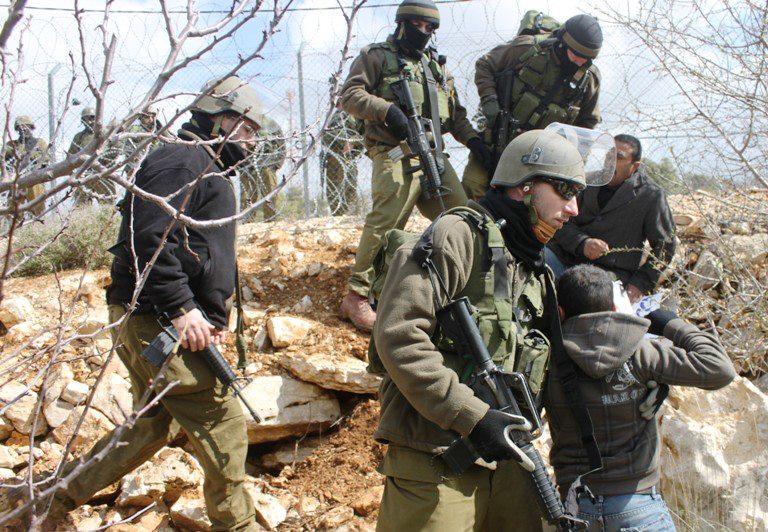Tag: Prisoner Rights
-
Amani al Khandaqja, defender of prisoner rights, becomes a prisoner herself
by Robin and Axel 21 March 2012 | International Solidarity Movement, West Bank Early Monday morning, on the 20th of March, Israeli soldiers raided a Palestinian home in the occupied West Bank city of Nablus, terrorized a family and arrested a young woman named Amani Al Khandaqja. The soldiers arrived at 2am, whilst the family…
-
Nablus marches for Hana Shalabi
by Christopher Beckett 21 March 2012 | International Solidarity Movement, West Bank On March 19th 2012, in the occupied West Bank city of Nablus, ISM volunteers joined demonstrators in solidarity with Ms. Hana Shalabi, now entering her 35th day of hunger strike. Marching from outside the headquarters of the Red Cross, a group of around…
-
In photos: Beit Ommar weekly protest
by Younes Arar 17 March 2012 | Beit Ommar Popular Committee The Beit Ommar Popular Committee organized today’s weekly peaceful protest adjacent to Karmei Tzur colony built on the stolen land of Beit Ommar farmers. When we arrived next to the so called security fence surrounding the colony, more than 60 heavily armed Israeli occupation…


